Did you know that October 1st is International Raccoon Appreciation Day? Though a bit late, we at SHADOW would like to celebrate one of Washington’s most resourceful and funny creatures: the raccoon (Procyon lotor). These nocturnal mammals are undoubtedly cute, but also play several important roles in our ecosystems. Let’s explore raccoons and their ecological significance!
About
Raccoons are the most well-known members of the Procyonid family, which also includes ringtails, coatis, and kinkajous. This family of mammals is characterized by being native to the Americas and primarily carnivorous, though some (such as the raccoon) eat plants too.
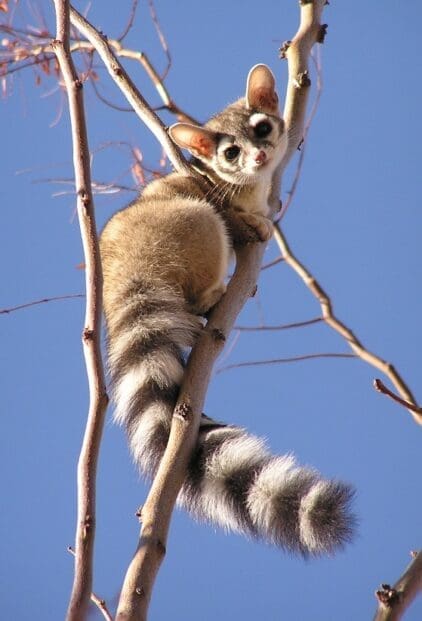
Ringtail
Raccoons are the most well-known members of the Procyonid family, which also includes ringtails, coatis, and kinkajous. This family of mammals is characterized by being native to the Americas and primarily carnivorous, though some (such as the raccoon) eat plants too.
Do you see the similarities between these other Procyonids and raccoons?
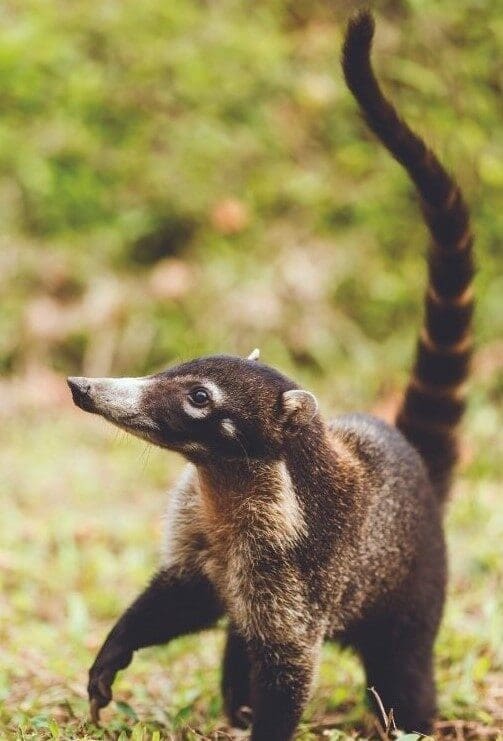
Coati
As omnivores, raccoons have an incredibly diverse diet, allowing them to adapt to different environments. They eat fruits, seeds, nuts, bird eggs, and are adept hunters both in water and on land. This enables them to catch fish, waterfowl, frogs, insects, crayfish, and even small mammals for dinner. Being opportunistic animals, they also consume carrion (dead animals).
How Do Raccoons Benefit Our Ecosystem?
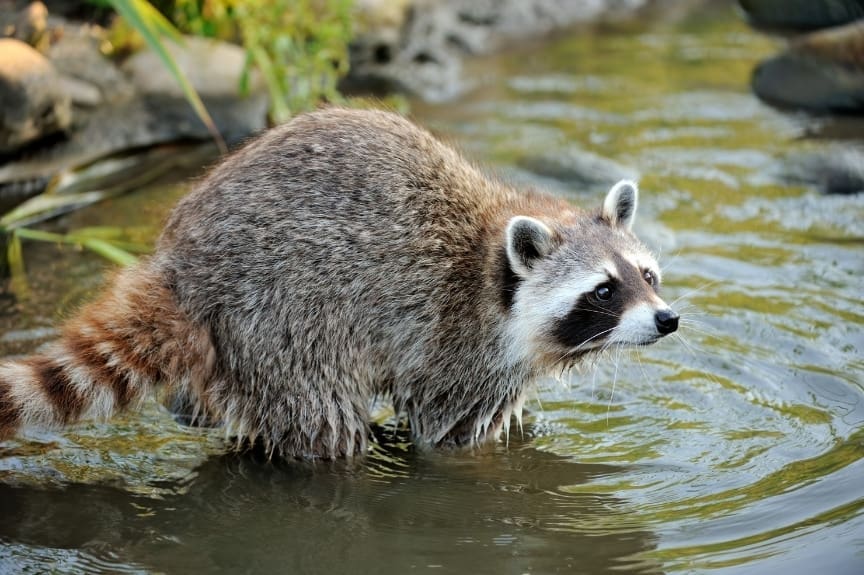
Raccoons, native to Washington state, play a crucial role in maintaining the balance of our ecosystem. One of their key contributions is natural pest control. By feeding on potential pests like rodents, slugs, snails, ticks, and wasps, raccoons help to keep these populations in check. Some of us have been unlucky enough to experience the irritation of tick bites or wasp stings, and the frustration of slugs and rats wreaking havoc on our gardens. That’s why I gladly welcome raccoons and appreciate them doing their jobs within the context of an ecosystem!
Additionally, raccoons disperse seeds. As they eat wild fruits throughout the day, they spread seeds through their droppings, thus kickstarting the growth of various plants (with a bonus of natural fertilizer)!
Raccoons also help move the nutrient cycle along by consuming carrion. They help clean up decomposing animal matter, which aids in returning nutrients to the soil. Furthermore, raccoons are one of many meals in our vast food web, serving as prey for predators such as cougars, bobcats, coyotes, large owls, and eagles. Their presence supports the health and diversity of our ecosystems.
How can YOU help your local raccoons?
The best way to support our raccoons is to provide them with native habitat. This is what we do at SHADOW, as we focus on preserving and restoring the land around Shadow Lake. You can grow a native garden in your own backyard to support these creatures, or volunteer at SHADOW to help preserve this existing habitat that is already a home to raccoon families. These environments allow raccoons to feed on naturally occurring plants and animals instead of rummaging in human trash cans, while also offering safe spaces for them to raise their kits. Fortunately, raccoons are quite common and not considered threatened in Washington!
Here are some native plants you can grow to provide fruits for raccoons:
- Pacific Madrone (Arbutus menziesii)
- Beaked Hazelnut (Corylus cornuta)
- Bitter Cherry (Prunus emarginata var. mollis)
- Cascara Buckthorn (Rhamnus purshiana)
- Red Flowering Currant (Ribes sanguineum)
- Salmonberry (Rubus spectabilis)
- Red huckleberry (Vaccinium parvifolium)
- Serviceberry or Saskatoon (Amelanchier alnifolia)
It’s very important to remember that raccoons (despite their cute appearance) are wild animals and should remain so. Do not attempt to befriend or domesticate them. Refrain from touching, feeding, or attracting raccoons by not leaving pet food outdoors and securing your trash bins. For injured or problematic raccoons, contact a humane wildlife control or animal control agency. This resource offers guidance on safely and humanely managing raccoon-human conflicts.
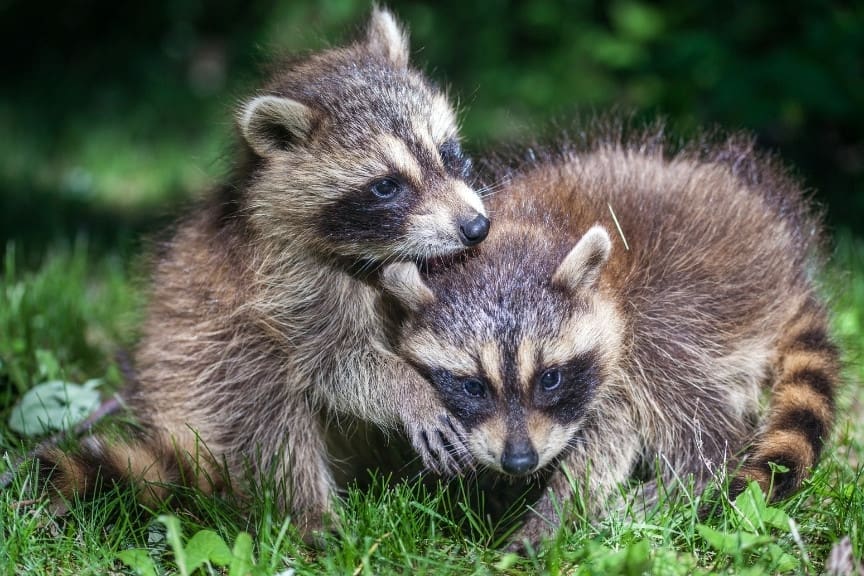
By TIPS 2024 intern, Hana Amos

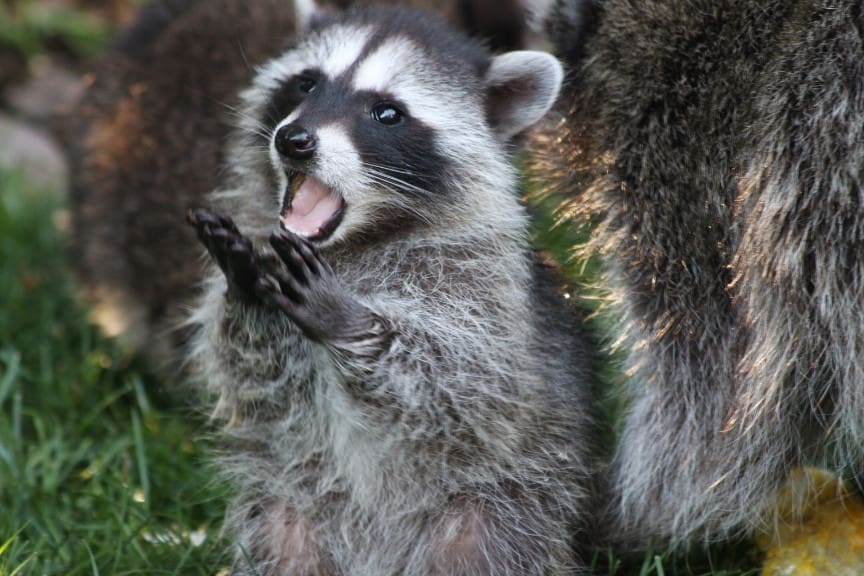
Recent Comments